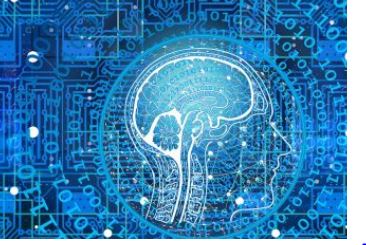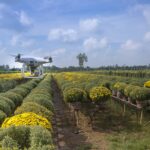Last September, Ksapa took part in a conversation on strategies likely to help companies accelerate their contribution to the 2030 Global Agenda.
The roundtable was joined by Jean Moreau (President and co-founder of Phenix), Manuella Cunha-Brito (Co-Founder and COO of the Good Tech Lab) and Cédric Mainguy (Head of Innovation at Palo-IT and organizer of the event). Together, we discussed technology’s potential to transform corporate business models to complete the Sustainable Development Objectives. The webinar replay is now available online. Here are our key learnings.
Business Must Step Up Contributions to the SDG
The United Nations’ Sustainable Development Objectives probably constitute one of humanity’s more important endeavor ever. Estimated at $12 trillion, the magnitude of the investment they require implies a shared effort across states, financial institutions, companies and citizens – for each and every one to do their part. Still, time is running out. Given how we already lagging behind, one cannot stress enough how urgent it is to collectively step up to the plate if we want to give ourselves a chance to fulfil these goals within the coming decade.
As far as the private sector is concerned, the notion only social business were poised to significantly contribute to the SDG would appear to be a thing of the past. Indeed Jean Moreau went on to state “opposing the historical ‘business for good’ sector and traditional capitalism is increasingly artificial”. Phenix, the company he co-founded offers a prime example, given how it has so successfully reconciled economic performance and positive socio-environmental impact. That said, it remains critical for pioneering companies to lead others and mainstream an embodied corporate responsibility approach – that is, fully embedded within the business model. The French Impact Movement Jean Moreau also presides aims to do just that, by bringing socio-ecological impact entrepreneurs together as part of a lobbying and business network, in such a way as to inspire the broader ecosystem to advance a better economy for tomorrow.
Digital Tools Are Readily-Available To Boost Corporate Transitions
As it turns out, catalysts are readily-available for companies to accelerate their contribution to Sustainable Development objectives. Digital technology and digital transformation levers have proven their ability to help companies adapt their business models and corporate culture in a turbulent and changing world.
Back in May 2019, the Good Tech Lab published a landmark overview of promising technological, entrepreneurial and systemic responses to address climate change, natural ecosystem restoration and social progress. The study in fact lists no less than 180 innovations to advance the SDG. Much in the same spirit, Ksapa’s 2030 report included a number of inspiring case studies, where companies successfully harnessed technological innovation to align with the Global Agenda. To that end, Ksapa recommends carefully choosing priorities as well as the technologies to address each of the 17 SDG. That in turns requires discernment and a careful contextual analysis, notably to pinpoint possible negative externalities linked to these very tools. Take venture capital, as it is so intrinsically tied to tech disruption: women and people of color are blatantly underrepresented, with a 2016 study going so far as to estimate more than 80% of partners in the United States are white and male. Tech for Good is all well and good, but only if players start with embedding gender parity (SDG 5) in their core culture.
Banks may for instance opt to focus on poverty alleviation (SDG 1), by offering financial inclusion solutions via mobile. Access to digital financial services has indeed proven its ability to lift people out of poverty. Industries may also use e-learning platforms to disseminate knowledge and best practices across their value chains to improve working conditions, promote sustainable practices and reduce their carbon footprint. Consider also how global players in the hospitality industry launched learning platforms to help bartenders weather the Covid-19 crisis by learning about waste as it pertains to ingredients, service, bar and staff management (SDG 8). Ksapa similarly uses these technologies as part of its impact investment programs targeting smallholders in fragmented supply chains throughout South-East Asia and Africa. Through large-scale training programs, our teams will help smallholders improve their practices, livelihoods and resilience, while addressing industrial buyers’ risk mitigation concerns. The latter indeed depend on raw commodities but are also increasingly accountable for responsible production (SDG 12) as well as global warming and deforestation across their value chains.
Time For a Bolder Socio-Ecological Transition in Tech
While digital tools are a proven lever in the completion of the 2030 Global Agenda, companies are still grappling to harness them for positive impact. For the time being, the Tech sector does not seem to sufficiently advocate for a socio-ecological transition to convince their customers – apart from responsible Tech players around the world. At issue, according to Manuella Cunha-Britto, is the lack of training among Tech leaders at a time sustainability competency proves so critical – to not only advise clients, but also to manage their own organizational transitions. As it involves rethinking technological innovation from a perspective of socio-environmental impact, it also implies a major cultural change. For instance, trustworthy Covid-19 tracking technology hinges on privacy and data management oversight, as much as effective architecture and rapidity, as demonstrated by the fact a number of state-sponsored apps where abandoned for plain pen and paper.
To that effect, Cédric Mainguy supported system thinking approaches to adapt conventional design methodologies – primarily centered on user experience – to contextual variations impacting innovation use and architecture. These systemic methodologies likewise back the eco-design of IT products and services with circularity in mind, for instance. This way, Tech may place innovation at the heart of how we endeavor to protect our planet and global society.
Another challenge for Tech is not to overlook developing economies in their innovation process, and to ensure their products and services effectively benefit all regions of the world. Digital inclusion across all territories is decidedly essential for our proposed transition to mainstream rather than be merely constricted to the Western world and start-ups that have already largely taken advantage of the infrastructure required to disseminate their innovations.
Gearing Finance Towards the SDG
Finance will also be a key ingredient in accelerating the contribution to SDG. Not only are fund managers increasingly attuned to the opportunities in the Tech for Good sectors, they are redirecting their accordingly, says Manuella Cunha Britto. Thinking more broadly, financial innovation in recent years has led to the emergence of new instruments – Social Bonds, Impact Bonds and Blended Finance, among others – socio-environmental impact acts as both a goal and a marker. These new mechanisms are so many levers for companies to step up their SDG roadmaps. The abovementioned Ksapa report in fact describes further financial innovations particularly relevant to SDG completion and within easy reach for business.
Rekindling Optimism
The SDG endeavor is colossal – certainly. We are already behind schedule – for sure. That is no reason not to rekindle optimism. Philosopher Alain inspiringly wrote “pessimism lurks in the mood, optimism lies in the will“. We at Ksapa and the speakers at the roundtable are unanimous in thinking optimism is a quintessential ingredient in this journey to change the status quo and move forward.
Let’s write the rest of the story together. Tomorrow’s world is rooted with today’s innovations. Get in touch!
Christian works at Ksapa as a Digital Solutions Director. He has 20 years of professional experience in the IT sector, having held various positions in solution development and sales at IBM France, Metamerge A/S (Norway) and the French Space Agency (Centre National Etudes Spatiales).
Wishing to strengthen the contribution of his projects to the common good, Christian recently completed an Executive Masters at Mines ParisTech/ISIGE.
Christian speaks French, English, Serbian, Spanish and Russian.






